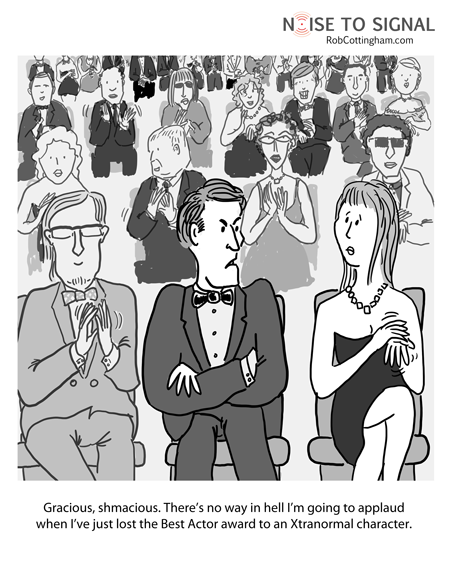(Originally posted to ReadWriteWeb)
The official Oscar nominations are out, and there’s a movie up for best picture that has a lot to say about social media and the online communications revolution sweeping the world.
The Social Network? Hell, no. I’m talking about The King’s Speech.
Set mostly in the years leading up to the Second World War, The King’s Speech deals with the extraordinary relationship between speech therapist Lionel Logue and Albert, Duke of York. Albert has a persistent stammer, an affliction that might have gone largely unremarked in past generations. But this is the era of radio, and when he ascends (a little relucantly) to the throne as King George VI, he must deliver an address to a nation suffering from grave fear and doubt.
(Spoiler alert: If you have some knowledge of history, you are probably assuming his address was at least good enough to avoid demoralizing the nation and forcing Britain’s capitulation to the Nazis. And you are correct. Also, you were probably a little surprised by the ending of Inglorious Basterds.)
This is the story of a friendship that crosses some very deep divides of class and colonialism. But it’s also a story of entrenched institutions confronting the transformational changes brought about thanks to technological innovation. And it’s a story of the changing relationship between the public and those in power, who have had a long time to become used to deciding when, where and how any communication will take place between them.
That’s a timely theme for anyone watching the past day’s events unfold in Tunisia and Egypt – or, for the matter, the past decade’s events in much of the rest of the world.

